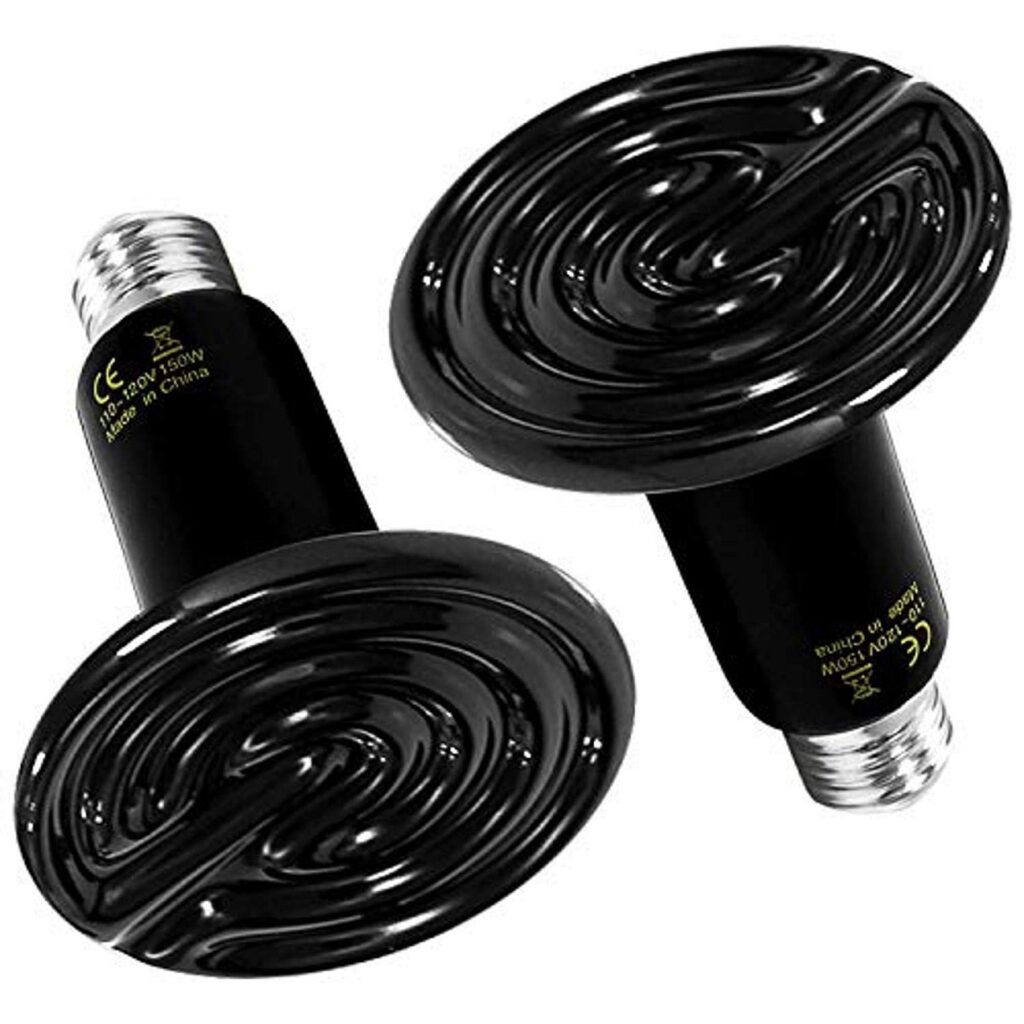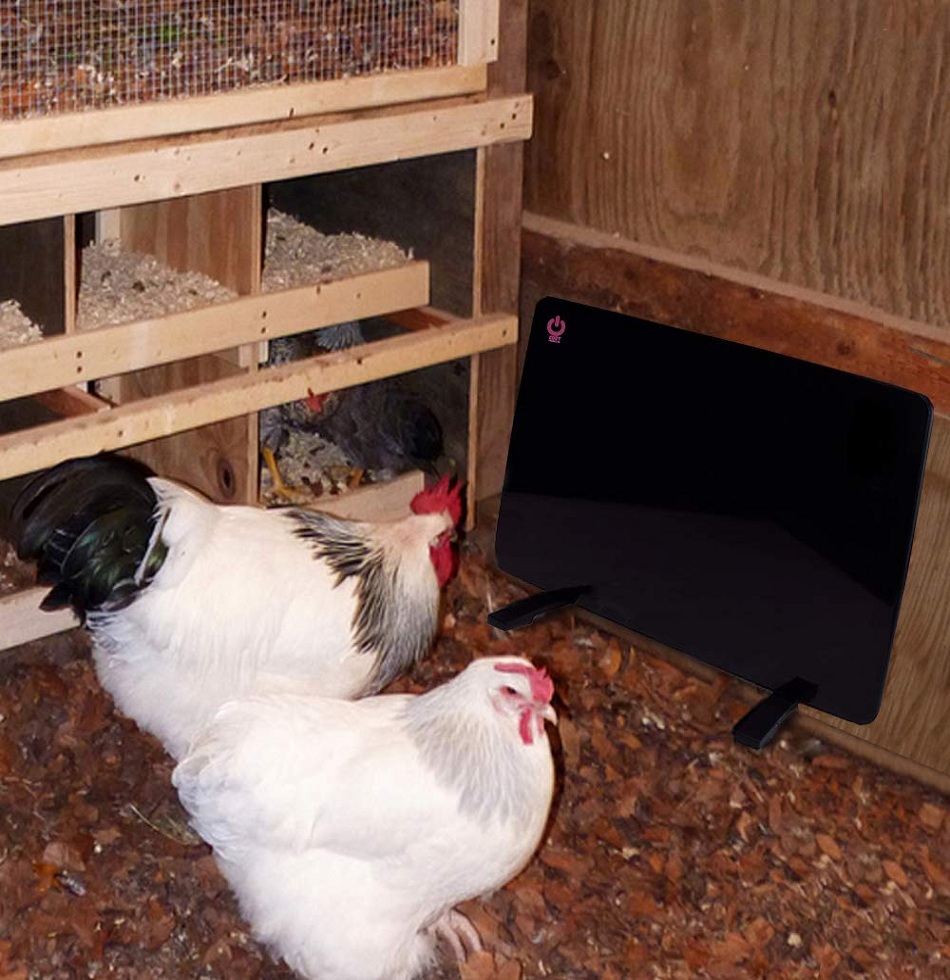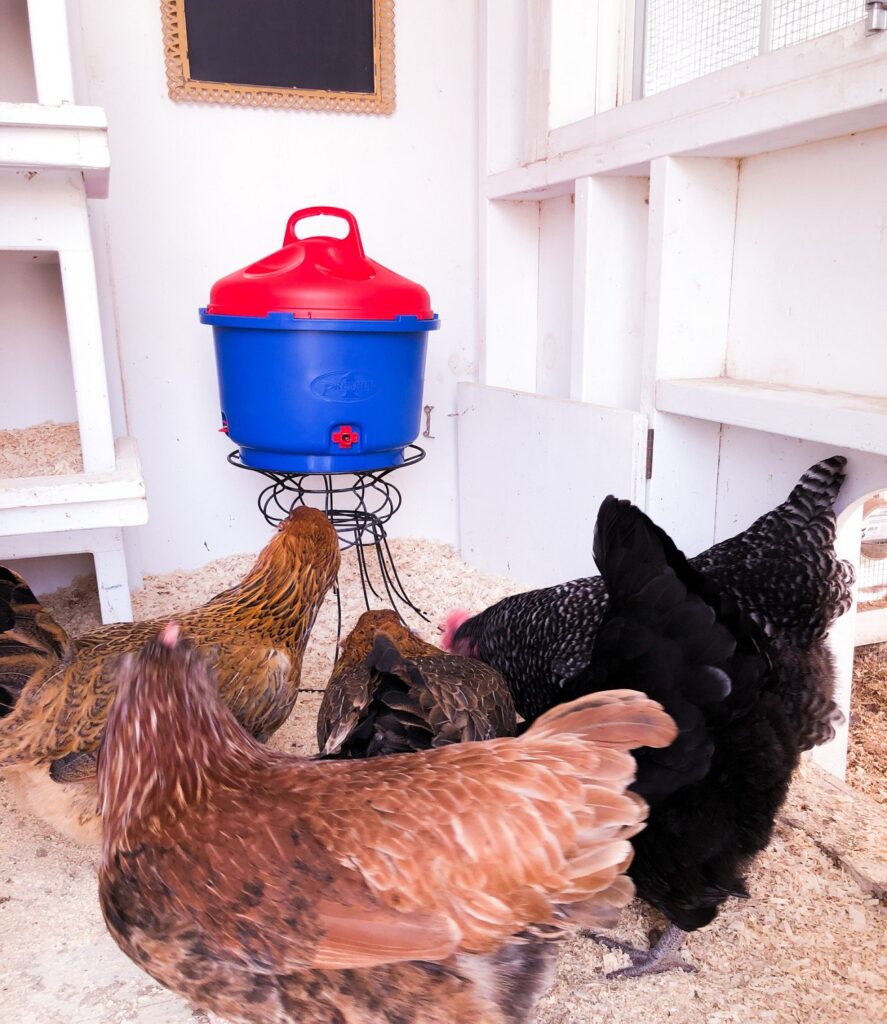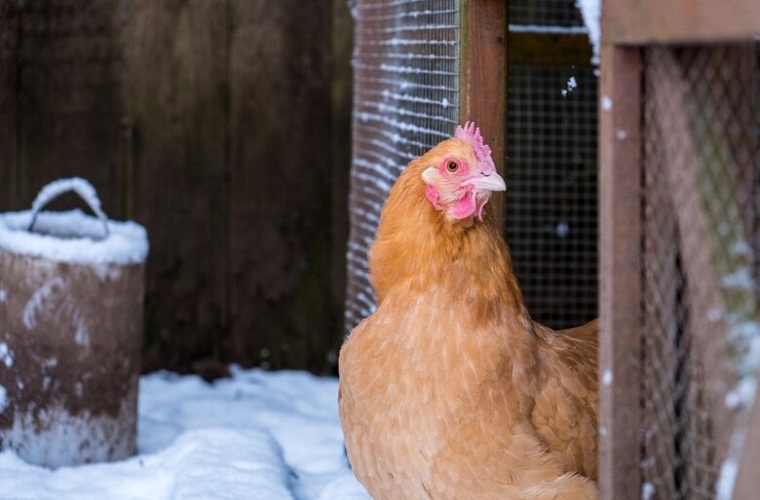Keeping your chickens warm and safe over the winter is essential to ensuring the well-being of your flock.
The use of improper heating methods can significantly increase the risk of fire in a coop. After all, wood, straw, and even dry manure are all very flammable materials. And they’re all prominent in roosting areas for chickens.
In this article, we will take a look at three items that can help you keep your chickens warm and safe even when the thermometer drops to dangerously low levels.
Using Ceramic Heat Bulbs in Place of Traditional Heat Lamps
Heat lamps, or regular 75 or 100-watt light bulbs can be exceedingly dangerous in a coop. They can light dry, aged wood, straw, cardboard, or even manure from a distance.
And that’s precisely why ceramic heat bulbs are a great and much safer option. We’ve been using them in our coop, and they’ve been very useful for adding some radiant warmth.
These bulbs, which were originally designed for terrariums to keep snakes and lizards warm, emit an even, radiant heat. But much better, without the light that can interrupt the sleeping routines of your flock.

Using A Flat Panel Chicken Heater
Alternatively, a flat panel chicken heater is an excellent option for warming a coop. For their efficiency and security, flat panels have been rapidly growing in popularity over the past few years.
The 200-watt heater doesn’t use any bulbs or lamps, instead radiating heat evenly across the entire panel.
It is safe enough to be placed on the floor and may be used to focus heat exactly where it is needed. Better yet, it can prevent water from freezing if placed close to it.
This method of heating the coop is not only more efficient than utilizing heat lamps or light bulbs, but it is also safer.

Using A Water Heater
Any backyard chicken owner will tell you that the most difficult aspect of caring for hens in the winter is dealing with frozen water.
Providing your chickens with access to water is crucial if you want to keep them healthy and happy over the winter. If they don’t get enough water, they can get dehydrated, which makes it harder for them to stay warm.
Nothing compares to repeatedly chipping ice or changing water buckets when they freeze. But that is a thing of the past if you have a heated water bucket in your chicken coop.
There are several models to choose from. Some people use a heated foundation to prevent ice from developing in the water above. There are also fully heated systems, such as the 3 Gallon Poultry Water.


